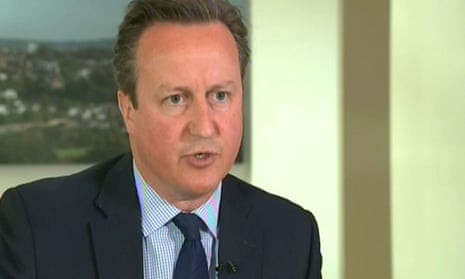Sunlight, according to a cliche favoured by David Cameron, is the best disinfectant. Well, this week, the comparison might instead be with dangerously concentrated bleach. After a five-day outpouring of secrets from an obscure office in Panama, a prime minister is out in Reykavik, a president is on the ropes in Buenos Aires and the censors are putting in serious overtime in Beijing. A new regime in world football has been tainted with old-fashioned sleaze, Vladimir Putin has been moved to dismiss a paper trail linking his friends with billions of dubious dollars as a plot, and some big names from showbiz have discovered that they share a lawyer with the associates of gold bullion robbers.
Considering a few of the stories that didn’t make the front pages – but could have done in any ordinary week – reaffirms the breathtaking volume of scandals that Mossack Fonseca kept discreetly under wraps. The lobbying and the tip-offs, for example, that HSBC provided to try and prevent the emerging Syrian war from separating President Bashar al-Assad’s cousin and intelligence chief, Rami Makhlouf, from his money. Then there were the disguised London property purchases and the hidden foundation planned for the daughters of Azerbaijan’s president, with the direct involvement of the minister of taxes in the latter scheme lending it a flavour of pre-revolutionary France. And don’t forget Petro Poroshenko, the Ukrainian president whose promise to “wipe the slate clean of business interests” was swallowed by the west, but who it transpires was – at the very hour of his troops’ gravest danger – concentrating instead on setting up offshore firms.
The simultaneous embroilment of Mr Poroshenko and the circle of his arch-enemy, Mr Putin, creates a dreadful sense that secretive adventures on treasure islands are simply what ruling elites do these days, irrespective of which side they may be on. Considering that Mossack Fonseca is only the fourth largest of the world’s offshore legal specialists, suspicious minds will assume that opening the vaults of the rest would reveal that every world leader is at it, whether “it” means dodging taxes, or simply getting very rich, very quietly. That is, in fact, too gloomy: not all political leaders are venal, and – who knows? – it may be that other offshore advisers are not given to the sort of exotic practices and sometimes cursory oversight that have been documented in Mossack Fonseca. That is, however, very hard to be sure of because they all operate behind a thick veil of secrecy. Indeed, in the face of this deluge of revelations, it is entirely understandable – and almost inevitable – that citizens will suspect the worst of their rulers.
There are parts of the world where that may be appropriate, and a necessary precondition of change. But it is harmful – and potentially disastrous – in the liberal democracies. Where the voters feel automatic contempt for their elected representatives, it is not only them individually, but for the whole system which Churchill wisely described as less bad than all the others that have been tried. That puts a real onus on politicians to prove their doubters wrong, by calling time on all the offshore tricks that allow the elite to live by different rules.
Barack Obama, who has long bemoaned tax havens, including in the books that he wrote before he entered the White House, has found precisely the right tone this week. Making an unscheduled appearance in the briefing room, he did not downplay the problem, but instead talked it up as “huge” and “important”. There was no labouring of the distinction between tax evasion and avoidance, no pained insistence that there was nothing inherently wrong with investing offshore. Such pleading would have lost the 99% who have never had any need to shunt their money across the ocean. Instead, the president explained that the real concern was not law breaking, but rather “that a lot of this stuff is legal, not illegal”.
What a sorry contrast with Mr Cameron. No 10 started the week trying to maintain that whether or not Britain’s first family had money offshore was a purely “private matter”. Three incomplete and decidedly murky “clarifications” followed before finally, three full days later, the PM arranged an interview so that he could fess up to the ultimately undeniable fact that he had in the past personally profited from an investment in the offshore fund run by his father, an operation that never paid UK tax, and had at times boasted about this. The facts as they stand do not point to the prime minister having done anything crooked, and yet the way they had to be dragged out of him was compromising – all the more so after it was revealed, midweek, that he had intervened with the EU to urge caution on the transparency rules where trusts were concerned. The family connection may make this uncomfortable territory for Mr Cameron, but he is shrewd enough to understand that this made it all the more important for him to get on to it, and on the front foot. Or, at least, he should have been. Even Thursday night’s clear-the-air interview left questions hanging, for example about other family members and trusts. The Jersey dimension to Cameron Sr’s bequest leaves other investigative avenues open.
The world’s leaders need to come together and salvage their stock, by tackling offshore. There is an early opportunity to do that next month, at an international anti-corruption summit, which – by one of fate’s quirks – is to be in London. Fronting that will not be comfortable for Britain’s prime minister. But if he is to convince a sceptical country that he really is governing for the many as opposed to the wealthy elite, he is going to have to throw himself into it, with everything he has got.









